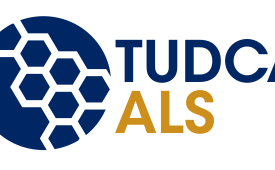
In order to find new treatments for ALS, our current strategy for drug development has to change. TRICALS has begun a series of meetings with industry partners to discuss how we can best achieve this. Based on these meetings, we have now published our considerations and suggestions in a scientific article.
Since the European Medicines Agency (EMA) approved ‘Riluzole’ in 1996, which extends survival, on average by three months, numerous clinical studies have trialled new compounds in the hope of identifying more effective treatments. Unfortunately, none of these has been successful. As of today, Riluzole remains the only medicine that can be prescribed to patients in Europe. The low success rate of clinical trials calls for an urgent reform of our approach. TRICALS will, therefore, address five key challenges which require improvement to move the field forward. We believe it is only by working together that we can create the highway towards new therapies.
1. The translation from bench to bedside
Before a drug is tested in patients in clinical trials, its safety and efficacy first have to be established in cell or animal models of ALS. Currently, these models do not seem to fully replicate the disease mechanisms involved in ALS. In addition, markers that verify whether a drug engages with its target often differ between animal models and humans. This hampers the translation of findings from the lab to the clinic and may incorrectly allow a drug to proceed to, or withhold it from, clinical testing. For this reason, TRICALS aims to develop new disease models that result in targeted, high-throughput and robust screening tools to efficiently determine the potential value of new candidate drugs.
2. Development of robust biomarkers
A biomarker is a characteristic that is used to detect and evaluate a specific process in our body (e.g. an antibody is a biomarker indicative of an infection). Robust biomarkers for monitoring someone’s disease course are key to clinical studies and may help to measure or predict a patient’s response to a drug. In addition, they are important factors in deciding whether a patient is eligible to participate in a clinical trial. TRICALS, therefore, strives to develop new biomarkers in all future clinical trials and to make better use of existing ones.
3. Revision of the eligibility criteria
It is now widely acknowledged that ALS is a heterogeneous disease. The intention of the current eligibility criteria of most clinical studies is to limit this heterogeneity to better define the effect of a drug. In practice this means that patients who are in an advanced disease stage, or patients with either a very fast or a very slow disease progression, are often excluded. The result is that the majority of patients cannot participate, and that candidate drugs are tested in a cohort that is not representative of the actual patient population. To tackle this problem, TRICALS aims to revise the current criteria. In addition, we apply and develop advanced prediction models to provide a reliable prognosis for individual patients. In this way we can drastically increase patient participation and improve clinical studies.
4. Improving efficacy endpoints and increasing follow-up duration
‘Efficacy endpoints’ are outcome measures that can be used to determine whether a treatment is beneficial for patients. Our current endpoints are not without limitations, which might explain why promising treatments from early phase clinical trials have failed in later stages. TRICALS works hard to identify and validate new outcome measures. In addition, we aim to increase the follow-up duration of clinical studies to allow enough time for a drug to manifest its full range of effects.
5. Innovating trial design
The process of designing and initiating new clinical trials is a lengthy one. Currently, new trials are often designed from scratch rather than building on previously established knowledge. This leads to an unnecessary waste of resources and produces highly variable research. To address this, we are preparing a platform trial, the ‘MAGNET’ study, which was recently endorsed by the European Medicines Agency. Using this protocol we can use our time more efficiently, test multiple treatments simultaneously and increase the number of people with ALS who can participate.
Within TRICALS we have developed a road map that will help to harness the energy, enthusiasm and creativity of top ALS researchers around the globe to address these key topics. By collaborating closely with industry partners, patients and ALS foundations, we will create a highway towards new therapies.
Our review article was published in the scientific journal Amyotrophic Lateral Sclerosis and Frontotemporal Degeneration. You can read the full article here.
Related news

Meet the centre - Torino ALS Center (University of Torino)

Amylyx withdraws RELYVRIO/AMX0035 from U.S. and Canadian markets

Results of TUDCA-study: No effect of investigated compound
